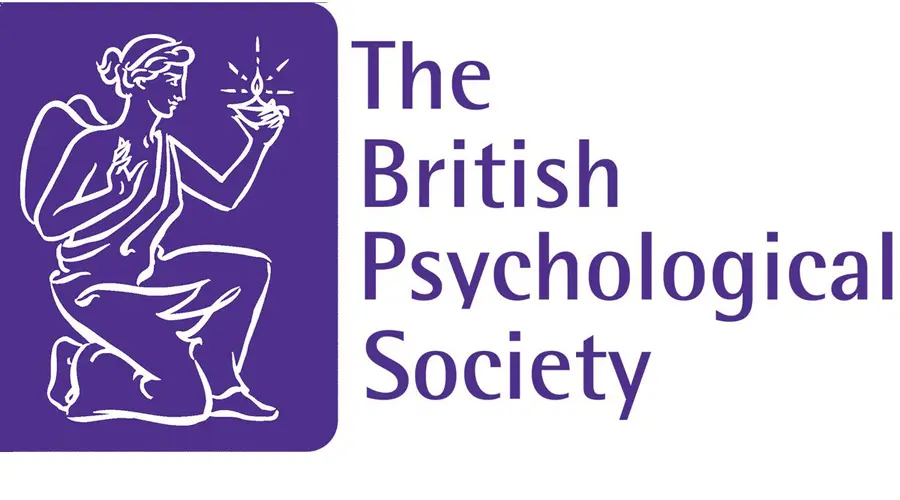Request information
![]()
100% of our Education research has internationally excellent impact*
REF 2021 based on 4* and 3* research, submitted to UoA4 Psychology, Psychiatry and Neuroscience
![]()
Top 125 in the world for Psychology
Times Higher Education World University Rankings by subject 2025
![]()
Top 10 in the UK for Psychology
Guardian University Guide 2025
![]()
11th in the UK for internationally excellent research in Psychology
REF 2021 based on 4* and 3* research, submitted to UoA4 Psychology, Psychiatry and Neuroscience
![]()
100% of our Education research has internationally excellent impact*
REF 2021 based on 4* and 3* research, submitted to UoA4 Psychology, Psychiatry and Neuroscience
![]()
Top 125 in the world for Psychology
Times Higher Education World University Rankings by subject 2025
![]()
Top 10 in the UK for Psychology
Guardian University Guide 2025
![]()
11th in the UK for internationally excellent research in Psychology
REF 2021 based on 4* and 3* research, submitted to UoA4 Psychology, Psychiatry and Neuroscience
Accreditations

This course is accredited by the British Psychological Society. BPS accreditation confers eligibility for the Graduate Basis for Chartered Membership. This is the first step towards becoming a Chartered Psychologist.
Entry requirements
We usually require a minimum 2:1 Honours degree. No specific subjects are required.
Please note, that in some circumstances, research projects as part of the final dissertation module, students will be required to complete a Disclosure and Barring Service (DBS) check.
Entry requirements for international students
International students need to show they have the required level of English language to study this course.
The required test scores for this course fall under Profile B2.
The MSc Psychology (Conversion) programme is really fascinating. I’m diving into topics that I’ve been interested in before, but now I’m getting a chance to discover more about them in greater detail.
I’ve also loved the friendships I’ve made. We’ve started a WhatsApp group and are sharing the highs and lows of studying online. It’s replaced the time you’d usually spend in the coffee shop after a lecture if you were on campus.
Carys
MSc Psychology (Conversion) Online student
Course content
Please note that programme structures may be subject to change. The modules listed here are indicative. The precise modules available to you in future years may vary depending on your point of entry, staff availability and research interests, new topics of study and student demand.
This course is specifically designed for graduates with non-psychology degrees to obtain a British Psychological Society - accredited postgraduate degree.
Completion of this course enables you to gain Graduate Basis for Chartered Membership of the BPS, allowing you to work as a psychologist in a variety of different fields, including education, clinical, forensic and organisational.
The course offers general training in psychology, making it of value to people with a broad range of aspirations, but also provides the option of specialising in clinical or educational psychology.
Fully online, it enables students to study in their own time, and without needing to attend campus.
Modules
The order in which modules are taken will vary slightly, depending on the entry point during the year. However, the module order in the course has been carefully thought out to maximise your potential for success.
In general, both Research Methods and Conceptual Issues in Psychology and Introduction to Statistics modules are taken in the first two terms, while the Research Project module is taken towards the end.
If you wish to complete the programme in two years, the course is structured so that pairs of modules are taken every term. Whereas, if you decide to take the programme in three years, for the most part, only one module is taken per term.
However, please note to complete the programme in a 3 year timeframe, there will be one term where you will need to take two modules. We will work with you to select which term is most feasible for this. As you will be taking two modules, it will double the estimated study time per week for that term.
For further information on this, please visit our ‘Teaching and learning’ section.
165 credits of compulsory modules, 15 credits of optional modules
Compulsory modules
| Code | Module | Credits |
|---|---|---|
| PSYM220Z | Research Project | 60 |
| PSYM221Z | Introduction to Statistics | 15 |
| PSYM222Z | Research Methods and Conceptual Issues in Psychology | 15 |
| PSYM223Z | Social Psychology | 15 |
| ERPM006Z | Cognitive and Developmental Psychology | 15 |
| PSYM225Z | Biological Psychology | 15 |
| ERPM007Z | Personality and Individual Differences | 15 |
| ERPM008Z | Children and Young People's Mental Health | 15 |
Optional modules
| Code | Module | Credits |
|---|---|---|
| PSYM227Z | Clinical Psychology | 15 |
| ERPM010Z | Educational Psychology | 15 |
Pay as you study
Fees:
£15,000 in total
Cost
The fee shows the total amount it will cost if you complete the degree if you take the minimum time of two years. If you take longer than two years, for example, because you take one or more breaks between modules, the total fee you pay may increase slightly due to inflation.
Pay as you study
To make it easier to budget, you don’t need to pay the total fee upfront. Instead, you can pay for each module as you are about to start studying it. You can pay for the whole year if you prefer, but the minimum payment is at least the cost of the module(s) you are taking that term. Please note that if your payment has not reached us by the end of week one of a module, you will have to wait until the next term to start.
How to pay
You can pay online using a credit or debit card. We are unable to give you access to your study materials before your payment reaches us so it’s important to have your finances in place and pay when prompted to ensure you can access your studies at the start of each term.
Other costs to consider
As well as your fees, there are some potential additional costs to be aware of to ensure that you give yourself the best chance of success. These include a suitable computer or device to study and work from, an adequate internet connection to access your learning materials and connect with others, and a comfortable place to study.
While our online programmes do not require any attendance on campus, as a student of the University of Exeter you are always welcome to visit. You may also be offered the chance to attend a graduation ceremony in person, for which travel costs and gown hire will apply.
Help with paying for your studies
If you are struggling to afford your chosen programme of study, some help may be available from either the government or the university. This includes:
- Postgraduate student loans. If you live in the UK, you may be able to access a loan to help pay for your online degree fees and living costs while you study. To be eligible, you must not already have a Masters degree (or above). For information on how to apply and your student finance entitlement, please visit the following links depending on whether you live in England, Wales, Scotland or Northern Ireland.
If you are awaiting the approval of a postgraduate loan to pay for the course and evidence is provided through the Admissions application gateway, access to learning material will be provided prior to receipt of payment. - Disabled Student Allowance (DSA).
Most UK students with a physical disability or mental health difficulty, long term health condition or specific learning difficulty will be able to apply for Disabled Students’ Allowance which can help towards the cost of specialist equipment, one-to-one support and other costs associated with your condition. If you feel this applies to you, you are encouraged to apply as early as possible as the whole process can take up to 12 weeks. If you complete an application and are not eligible for DSA, please make an appointment with the AccessAbility Team to discuss alternative funding and support. - Success for All fund. Some financial support may be possible through our Success for All fund as assessed on a case-by-case basis providing eligibility criteria are met. Fully online students are not automatically eligible for an IT bursary, but exceptions may be made in some circumstances. However, please note the University would expect students to have made reasonable provision to support themselves during their studies prior to enrolling on a module.
- Employer sponsorship. Your employer or another organisation you are associated with may be happy to pay all or part of your fee. If you are getting financial support in this way, we can invoice them directly for the value that they have agreed to support before you start your studies. You will have to pay any balance so that the module you are studying is paid in full before you start.
- Student discounts. Our online students are fully registered students of the university, and therefore can ask for an Exeter Unicard, which can be used to access a wide range of student discounts on everyday items including food and clothing. You can also apply for student discounts on products and services through the UniDays card.
What opportunities does this programme lead to?
Employer-valued skills this course develops
This programme is specifically designed to enable students with a non-psychology background to pursue a career in psychology, many of which require a BPS-accredited degree for further training. This degree will help prepare graduates for a subsequent career in, for example, clinical psychology, educational psychology, organisational and occupational psychology, and forensic psychology.
Careers services
Studying with us not only offers outstanding opportunities for career development, but also the chance to tap into a worldwide peer and research network. Additionally, learning in a virtual environment both enhances and demonstrates vital skills that employers are seeking in the modern workplace, such as communication and time-management skills, the ability to self-motivate and direct, and an ease with digital technologies.
Teaching and learning
How will I learn?
While each module will differ slightly, there are typically two main assessments where marks contribute to your overall module grade. These usually occur approximately half-way through and at the end of term. At the end of term, you should reflect on how your module and assessments have gone and prepare for the next module. The rest of the term is divided into learning time, independent study, preparation of assessments and your tutors marking your work and getting feedback to you.
You will also be assigned an academic personal tutor who is familiar with the programme and can talk to you about your academic and professional development. They can offer guidance about studying psychology online, careers and help direct you to relevant university resources.
All your learning will be accessed online in our all-encompassing Exeter Learning Environment (ELE), including:
- Teaching materials – as written, recorded, or animated content
- Quizzes to check your learning and understanding
- Videos, podcasts, articles to read
- Access to electronic books
- Assessment information including submission deadlines
Your learning will be divided up into a weekly schedule so you can see what work you should aim to get through on a weekly basis. We’ve built in time for preparation and submission of any assessments you have and then time for you to get feedback on those before you decide to sign up and pay for your next module. Each module has an academic lead, and often a team of tutors, to direct your learning.
You should expect to study around 8 hours per week on average for a 15-credit module. Around half of this time will be structured teaching and learning activities, the rest will be self-directed learning, such as reading or preparing for assessments.
If you wish to complete the programme in two years, the course is structured so that pairs of modules are taken every term. Whereas, if you decide to take the programme in three years, for the most part, only one module is taken per term.
However, please note to complete the programme in a 3 year timeframe, there will be one term where you will need to take two modules. We will work with you to select which term is most feasible for this. For that term, as you will be taking two modules, it will double the estimated study time per week.
The final Research Project module is allocated 60 credits overall, but it is typically taken over the final two terms of your programme. This is also more intensive than studying one module in a term.
For more detailed information on what studying online with the University of Exeter looks like, visit our ‘Why study online’ pages.
We recognise that balancing study with other commitments in your life can be challenging. We have resources to help you manage your time, and our Study Zone staff can help you with the academic and planning skills you need to make your time with us as successful as it can be.
The course is 100% online and designed so that most of the learning and interaction takes place asynchronously. There are, for example, no live lectures that you need to attend. Group discussions may take place using online forums and questions can be posed to lecturers online and via email. All this means that there is no need for a timetable, you can complete the activities at times during the week that suits you.
The programme includes a dedicated student support team, there to help you with all non-academic enquiries. You can email the team and book 1:1 sessions for further advice. In addition, we have a wealth of resources across the university that you are able to access – from library to wellbeing services.
A typical week
A week on the programme will vary slightly from module to module and will depend on how long you take to complete the programme.
For example, you will naturally spend more time on assignments in weeks leading up to submission dates. If you are completing the programme in two years, you can expect a typical week’s activities to look something like this:
- Monday: Reviewing tutor responses and reading the weekly summary from the previous week
- Tuesday: No Masters work
- Wednesday afternoon: Do starter activities and introductory content from module 1
- Thursday morning: Do starter activities and introductory content from module 2
- Friday afternoon and evening: Rest of content and complete activities from module 1
- Saturday afternoon: Rest of content and complete activities from module 2
- Sunday morning: Make a head start on one of the mini essays from module 1 that had associated content this week.
If you wish to complete the programme in three years, and are taking one module in a term, a typical week will look different to the schedule above:
- Monday afternoon: Reviewing tutor responses and reading the weekly summary from the previous week
- Tuesday-Wednesday: No Masters work
- Thursday morning: Do starter activities and introductory content from module
- Friday afternoon and evening: Rest of content and complete activities from module
- Sunday morning: Make a head start on one of the mini essays for the module assessment that had associated content this week.
Learning from experts
Our staff are recognised internationally for their academic excellence, high-quality research and applied output. They actively research the areas of psychology they teach, so their expertise feeds directly into our research-led programmes. Our department is in the top 100 worldwide for Psychology* and we are committed to providing an outstanding learning experience, generating high-quality academic research and advancing clinical practice.
All the modules that you take will be underpinned by research-led learning. You will learn about classic studies as well as cutting-edge research in the core areas of psychology (e.g., cognitive, biological, social, developmental psychology, personality and individual differences as well as potentially clinical and educational psychology).
Members of staff have strong research links with universities in other countries and we work in partnership with a variety of public and private-sector organisations to ensure our research is relevant to policymakers.
*QS World University Rankings 2024
Study a 100% online Psychology degree at a Top 15 University*
Apply now for September 2025 entry »
Apply now for January 2026 entry »
Apply now for May 2026 entry »
* 13th in The Times and Sunday Times Good University Guide 2025






